featured
Highly Enlightened: Ricky Williams, Founder at Highsman
Published
5 months agoon
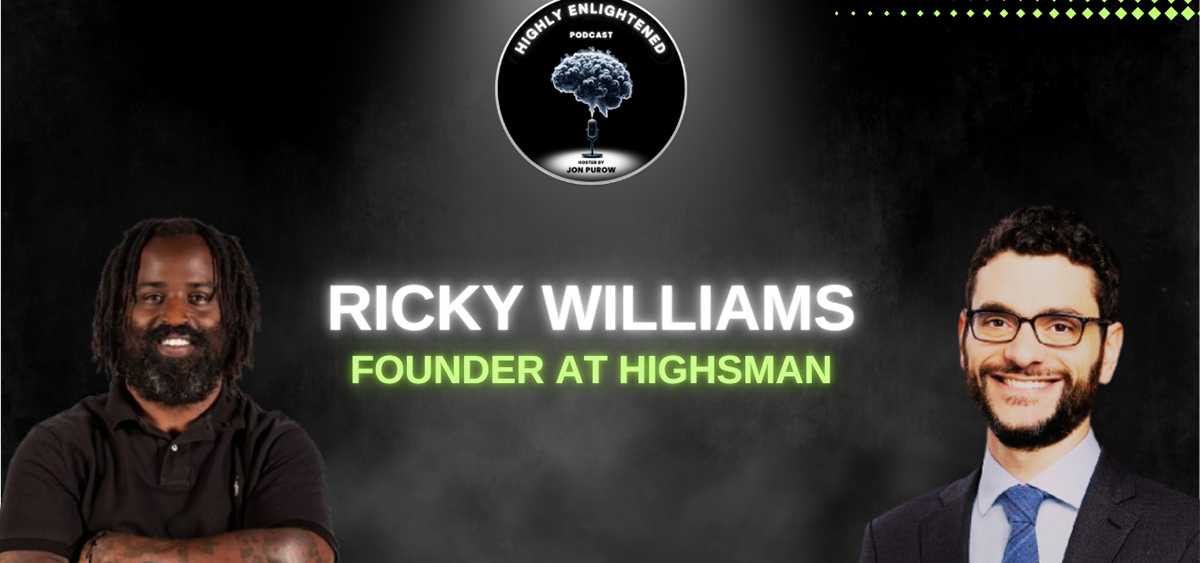
Find us in your favorite podcast app:
Spotify
SoundCloud
iTunes
Stitcher
Ricky Williams won a Heisman Trophy at Texas and rushed for over 10,000 yards in 11 NFL seasons. He is now the President and Co-Founder of Highsman, a lifestyle brand that Ricky personally curates, from the cannabis to the accessories. Ricky launched Highsman to provide communities of sports fans and herb enthusiasts everywhere with a platform to own their relationship with cannabis and its ability to unlock true, personal greatness.
In this episode of Highly Enlightened, syndicated by Ganjapreneur, host Jon Purow speaks with Ricky about the principles that have guided his journey — from challenging the stigma around cannabis as an athlete to becoming a founder and advocate within the cannabis industry. Ricky shares hard-earned wisdom on leadership, the deeper meaning of cannabis, the spiritual and practical lessons from his career, and how staying true to his values shaped his personal and professional evolution. This episode is a thoughtful, philosophical conversation that touches on resilience, the power of perspective, and why Ricky believes cannabis is more than just a product — it’s a tool for personal and societal transformation.
Listen to the episode below or wherever you get your podcasts — you can find more episodes of Highly Enlightened on Buzzsprout.
Listen to the episode:
Episode sponsored by eBottles
This episode of Highly Enlightened is made possible by eBottles. If you’re in the cannabis business, you know that quality packaging isn’t just important—it’s essential. That’s where eBottles comes in. Whether you’re just starting out or scaling up, eBottles offers proprietary top-of-the-line packaging products built for cannabis. eBottles is a market leader for a good reason: they are experts in the field. Six patents, five warehouse locations around the country, a network of exceptional distributors. Get eBottles and Grow Boldly.
Read the transcript:
Jon Purow:
Hey there. Welcome to another Canna-Convo episode of my Highly Enlightened podcast. Very excited to have a specific guest today. The podcast is syndicated by Ganjapreneur, and as always, I’m your host, Jon Purow. Now, before we get an awesome interview, I want to note that any opinions I express on my own are not those in my brand new law firm. Herbal Laws LLC, though judging by the name, you could probably guess they probably wouldn’t be that offended before we start. As I always like to do quick prayer to the video chat, gods may, our wifi connections be sturdy, all dogs and children remain quiet and my Amazon Prime another time. Amen. Now I have the pleasure of introducing the one and only Ricky Williams. I forgot. I apologize, Ricky, because one thing I did not neglected to before we started was to clarify what title you wanted to be introduced by. But you know what? I think this is the best first question to start with is how would you introduce yourself in a, how do you try and boil down Ricky Williams to a title?
Ricky Williams:
I don’t. I don’t.
Jon Purow:
Okay, then that’s it. Let’s not give you a title. Let’s pull. Yeah, perfect. Look, you’re someone obviously who, some people are familiar with your experience prior to the cannabis industry, but this is such a new industry that we’re all bringing something from the past into it, and we find something useful in ways that we don’t expect. So what do you think in terms of your life experience that you brought to the cannabis industry has been the most kind of helpful to you and why?
Ricky Williams:
I think getting in trouble and having the opportunity to take a public stand for my cannabis consumption. I think by far, I think because inspiration there, and I think people, if they weren’t around or paying attention to the story in real time with YouTube and the internet, they can track down the story. And young people, old people that have had similar experiences, I can tell they all get a sense of inspiration and that’s extremely helpful in this industry right now.
Jon Purow:
Well, this is what I mean. I think that’s why I was so happy to finally meet you, because I think that you are legitimately a hero in this industry. And to recap, Ricky is being modest and everything, but to recap, really what we’re talking about here is Ricky, during what was on track, we could still say potentially a hall of fame career. You were using marijuana to treat your social anxiety disorder. You were testing positive, and it was called there are repercussions for you. And you took a stand, essentially in favor of the plant and the medicine for you. And so one question that I find fascinating about this is we’re still so nascent in terms of the medical research about this, right? Everyone I know who has, there’s so many people in this industry who are ADHD and use the plant because it’s effectively medicine.
And at some point what I realized was it’s not a function of whether or not there’s a link there that it can treat it as medicine. It’s that we just haven’t discovered it yet. So when you were taking your stand, this was 20 years ago, there was no backup. There was no doctor saying, oh no, he’s pursuing something. That’s an actual treatment. It was just you knowing your truth. Right. So I’m curious to know your decision making, how you took that stand, right? And what helped for yourself that this is something you had to take the stand for.
Ricky Williams:
Yeah, I mean, you mentioned the word hero, and I don’t take that lightly. As a professional football player, I was trying to be a hero. And even in football, the heroes are made in those vitals, those situations where it can go one way or the other where everything is on the line. And did your training prepare you to make the right decision and to come through in that situation? And for me, that came through in cannabis when it became public that I failed, that I failed a drug test. And a couple of moments where I had an opportunity to tell the truth and to tell my story or to lie and to make up something. And based on first and foremost, the most powerful thing, my own experience, based on my own experience, I had no doubt that cannabis was helping me, helping me with what?
That was a big question at the time because we didn’t have the language, but there was no doubt that it was helping me. And I think of the many, many, many thousands, hundreds of thousands of years that we’ve existed without medical research to tell us what was good for us. And somehow we survived. Somehow we survived. So I trusted myself. And the one point of outside data that I get is everyone I asked who was really into cannabis at the time, I asked them the story about when they first started or how they got into it, 90% of them told a story about some kind of physical, emotional, spiritual injury and how it helped him. It was across the board. So from my own personal data and my own personal experience, I had no doubt that I was onto something.
Jon Purow:
And look, and this is the reason why I think that the term hero is appropriate, is that heroes are an ideal. Here’s what I think the connection is. Heroes do things out of principle, and they’ll take a stand and they’ll pay the consequence for it. And they could be a martyr hero. They could be that brave hero who steps up in the moment, like you said, whether it’s an athletic game or when you have that opportunity to, but you had that purity of heart and spirit that you weren’t going to compromise. You could have played the game, like you said, but why you wouldn’t? Do
Ricky Williams:
I know? I don’t know. I don’t think I could have.
I could have. So part of it is I can take credit, but it’s principles and thank God I grew up in a very religious household were principles were very important to me. And so it kind of stuck through. And so when I got to this place where it wasn’t what I expected, because in one sense I did everything I wasn’t supposed to do. When you’re a good athlete or you have a lot of potential, the one thing they told me growing up, it stay away from drugs, you’ll throw it all away from drugs for drugs. And there I was throwing it all away for drugs. So it was a powerful external narrative that was really challenged by internal principles. But again, the benefits that I received from cannabis, I couldn’t deny them. It would be sacrilege to pretend that I wasn’t receiving something helpful and beneficial.
Jon Purow:
Yeah, no, I mean, I just think it’s great. And I think that it’s important to look, there’s stories that need to be told in this industry. We need to tell the stories of the people whose lives were horribly ruined by a bullshit war on drugs. And when there’s an inspirational story like yours, even if there are obviously some of the tough parts of it, I think that that has to be amplified. Right. So I’m happy to talk about it in this context. Now, being in the industry, you are a leader in this industry and you are a unique leader in this industry. So what advice would you give, I don’t know if I’m blurry on your end, but probably look better this way to most people. I got a face for radio. What advice would you give regarding leadership to other leaders in the cannabis space? What have you learned along the way?
Ricky Williams:
We all have a certain gift, and I’d say my gift is to stay true and be clear about what my principles are. And so the only advice I can give is going to be really related to that. And to be clear on what your principles are, I think the biggest issue for a lot of us is we’re not clear on what our principles are. Even if we’re principles, a lot of times we don’t have the awareness of what actually we’re being principled towards, because a lot of it was put into us before we were old enough to make that conscious decision. And I think one of the gifts of cannabis is it opens our minds to be able to even consider asking these kinds of questions of what am I being principled towards? And when I started asking myself those questions, I realized that it was kind of arbitrary. And then underneath the arbitrary, whatever I’ve been taught to be principled to is a choice of what do I feel really connected to and really strongly about that would feel better to me to be principled towards. And so that would be my advice is use the plant. Use the plant to help make you a better leader. And whatever that means to anyone, that’s going to mean something different to every person. But that would be my advice. If you’re going to be a leader in this industry, it’s nice if you’re co-leading with some kind of connection to the plant.
Jon Purow:
Yeah, no, I mean, I agree with that. I mean, we find our truths in the plant and we try and spread those truths or you like the way of phrasing that?
Ricky Williams:
Well, but again, when we talk about the plant, this plant is older than the English language,
Jon Purow:
And our youth have been medically is older than that. I take great pride when they find the stories of, they’re like, Hey, the Jews burn cannabis. And I was like, yes. Right. I knew that we had a connection. It goes back thousands of years. So I appreciate that as well. So I think that that makes a lot of, this is what I appreciate what you’re talking about, right? We’re talking about a story where your principles essentially were the basis of how everything played out. Now you’re saying examine what your principles are, think about what they are at any given time. And frankly, you know what? I think we don’t give ourselves enough time to do anymore, constantly distracted. And our phones are the biggest drugs trying to use our attention for the attention economy is we don’t say to ourselves enough, why are we doing this? And I also just think that principle wise, you know what always comes down to, and this is me honoring my mother’s legacy, I say more than anything is the golden rule. Everything could come down to that. Treat others. You want to be treated. I come up with ways of extensions of that. And I just think that I appreciate when we find people who are of principle, and you proved it personally by taking a stand, those are the people we should value purity of spirit and everything like that. So lemme know, I’m tossing around words like hero and everything, but I’m trying to explain why I respect you in that regard.
Ricky Williams:
Yeah. Well, I think when we know that someone is of principles, because we’ve seen evidence, the value is we know what we’re going to get in a specific area because third areas of my life, I’m not so principled because they’re not important to me, but the things I’m principled about, they’re extremely important to me and it’s going to show up in my behavior, in my acts.
Jon Purow:
The funny thing is, is that when I was thinking about what I thought about you the other day, and what I thought about was why can’t politicians be like that? Why can’t politicians, we get them up there, we put them on a stand, they have to change their mind or not, or they wishy-washy whatever it is. But you would want politicians and leaders with that purity of spirit. You know what I’m saying? So Ricky Williams for Texas governor starting in here, and you’re going to be on the tick with Matthew McConaughey, right? Be, I think that that would be a good match. You guys both appreciate the plant. Okay,
Ricky Williams:
That’s not a bad idea.
Jon Purow:
There you go. You heard it here first. We broke news. So now I wanted to ask you, what are some of the biggest factors in terms of, you have this wonderful brand, Heisman, which of course plays upon the fact that you won the Heisman Trophy, but I love it because it’s a parody spelled Heisman. What are some of the biggest factors in terms of how Heisman has grown over the years it’s been active?
Ricky Williams:
Oh man. Biggest factors. If you have a principle, it’s like a target, but it takes time and effort and overcoming obstacles and figuring things out to make momentum, to make headway in that direction. And so that’s what it’s been, us getting clear on what we want to do. Because when we first started, when you first start anything, it’s a vision. It’s something that exists in the ether and making it real. That’s all the effort. And the tagline of Heisman is spark greatness. And people see it and they laugh. The goal of, to me this brand is people see it and they get it, then they get it. We can talk about the word high and it’s been given a really bad connotation. But if you think deeply, the opposite of high is low. It is low. And I think of my experience when I consume cannabis and what I get out of it most is the ability to see the larger perspective. And if I’m trying to see the larger perspective of a piece of land, the higher I go, I have a greater view of the bigger picture. If I’m down low, all I can see is what’s right in front of me. And in this world, what’s right in front of us is kind of depressing.
No, no. And I think sometimes when it’s depressing, it’s not that we need to escape, but we need to see the bigger picture so we can have some perspective so we can do something to change the things that are depressing us.
Jon Purow:
Yeah, look, I hate it when we have to go to that spot, but the fact of the matter is that there’s a lot of things in this world right now where it seems like we’re behind eight ball. I have a nine and 13-year-old daughter. I mean, to be personal about this, my 9-year-old daughter is anxious about all the stuff going on in the world, keeps her up at night. She’s nine. This is when kids are supposed to be innocent. And she’s already lost her innocence to the horrors of the world that she’s going to inherit. And so that’s why I think that I, I told you about, I think I might’ve told you about this, when I say everything boils down to the golden rule, when I was healing from breaking my back, I came up with this kind of value system or school of thought called alpha truism.
And the idea is compound good. Don’t just do good. When we talk about how we’re going to value good, there’s certain things and Jewish value systems, or if it’s an anonymous gift, then that’s a pure form of giving or whatever, but it’s trying to do good, but compound it. Can you systematize it? Can you replicate it? And so I just want to tell you that when I think about the parade of horribles that there is out there right now, I think that we get the right people together, we get the right mindset, and it’s like instead of being diabolical, it’s like good diabolical. And that’s what I think we could all do together as we seek inspiration and build stuff. So I mean, I think that that’s what you said helped your company grow was your perspective. I think that you have this natural thing where you’re saying we takes you to that place, but it’s that you get that high level view.
Ricky Williams:
Yeah, because in the startup world and in cannabis both, and then when you combine both, it’s like, whoa, people always feel like the sky is falling. And if you’re on the earth, you’re down here and things are falling, that’s what you think the sky is falling. If you’re up here out, it’s just raining a little bit. So keeping everyone on the same page and making sure when the sky feels like it’s falling, that we have perspective and we remember what we are doing, that this is not going to something we’re going to build overnight, that this is a major transition in history and we get to be a part of it. And all we have to do is hold on and stay true to our message, and we will come through on the end. And what I’m saying about things on the ground level being difficult, it’s not a bad thing. It’s the reality of it. And it’s something that comes through in playing football is that every week we have a new opponent that has someone that’s being paid a whole lot of money because they’re really good that we have to make sure we account for or we will lose. So this idea of we have football, we have to come together as a team and do good because it easily translates to do good so that when the opponent comes, we have enough good saved up that we can overcome it and we can be victorious.
Jon Purow:
Yeah. Yeah, a hundred percent.
[Commercial break]
So now I want to ask you are in your time in the industry, and I think that you’ve kind of touched upon some of these points a little bit philosophically so far, but what are a couple of things that the industry has taught you? What are facts that jump out that were surprises to you or just important points that you’ve used as kind of a guide as you proceed?
Ricky Williams:
I’m 47 now, and there is something about this idea of being over the hill, and I won’t say to the extent of I’ve seen everything, but you’ve been on the planet 40 something years and you’ve lived as intensely as I have. It’s not that you don’t see anything new, but everything you see, it reminds you of something else that you’ve already known. It may be to different magnitudes. You get to see it more closely, so you appreciate it more. So it’s not like it’s necessarily anything new, but basically everything I’ve learned in football, it’s just that it applies to real life with a little bit of sensitivity. It is like the first thing is if football is know your opponent, and actually the first thing in football is self scout. Know yourself, know your opponent, come up with a game plan, execute, review, rinse and repeat. That’s the lesson in football, and it applies to cannabis in the industry. But the tricky part is knowing yourself and knowing your opponent, knowing yourself is tricky because most people that have survived this long that understand business, but a lot of people, they don’t necessarily understand cannabis. That’s a huge question, at least in my mind, is a huge question mark, is what is this? What is cannabis? And coming from a bit of a tech background, it’s an emerging technology,
It’s an emerging technology. It’s still a big question mark. And at the same time, we’re trying to do business, but we are not even really clear what exactly we’re selling.
Jon Purow:
Oh, I mean, the fact is that we’re still developing it, right? I mean, this is the thing. We’re still developing it. Our product diversification, we are at the tip of the iceberg. And so when you talk about a product and what are we developing, drugs serve a certain function. And so we don’t even know all the functions that it can serve and the form factors that it can. But we analyze it from a macro level saying, how do we cater to the cane? How do we cater to the can of curious and what are the effects that we’re going for? So right now, when I’m licensing tech, what am I trying to do? Really, I’m trying to license any feeling with any cannabinoid in any type of onset for however long I want to design it. That’s what I’m trying to achieve.
Ricky Williams:
I think the potential of what we learned about this plant, I think it’s going to come down to something you just said about we are selling a feeling.
Jon Purow:
Yeah.
Ricky Williams:
Yeah. And so again, a bigger philosophical question is I think is people get more clarity about the use of feelings, what they can be used for. Because to me, this spills us over into the idea of what is medicine you? What is
Jon Purow:
Medicine? Yeah. I mean, medicine is self manipulation, right? There is a condition of the self, you want to do something about it. You can’t do it necessarily internally, you need an external thing. So who are we supposed to say that there’s a difference in value between a pharmaceutical drug that was produced in the laboratory and a plant that was given to us effectively by God, evolution, whatever you want to believe was behind it. I mean, the fact of the matter is pharmaceutical drugs repurpose things from nature all the time. So the natural order came to value, to values that we’re extracting more value out of natural things. And so if we take in a drug, we’re trying to achieve a certain effect. And what it is, is it’s a form of self manipulation. We’re all trying, if every old life is a video game simulation, we’re trying to get, when we are doing drugs, trying to control the sensation, the environment of all of it.
And I just think that that’s what we’re chasing. Just like I meditate to self manipulate, and I get certain effects from that meditation, but you’re saying we need to rethink what a drug is. Meditation is a drug. I view meditation as a drug. I view that as the best drug I’ve ever done. There’s no negative health effects. And it puts me in the right state of mind, basically similar and can make me feel high if I’m doing breathing exercises. You could have psychedelic effects based on your breathing routines, right? Meditation is a drug. So that’s my responsible from
Ricky Williams:
That. Yeah. I mean, just to throw something kind of funny out there at the right time, a good hug is a drug. I won’t go down that path, but I will go down this path is it is self manipulation, but just in the world of AI where we’re getting a new language and a new way to think about technology and drugs, I was thinking, I’ve been thinking about this a lot. It’s automation. It’s automation of biological functions. Because I used to think when I first started learning about cannabis, it was the same time I was learning about meditation and I realized what I can get to from meditating daily for an hour, for two weeks, two weeks on the right day, I can get to you with a couple of hits. But the difference is the point I get to meditation in two weeks, it lasts longer. There’s an automation, and if we know how to utilize the automation to make ourselves more efficient, oh wow. That’s why I call this an emerging technology. But if we become lazy through the automation, then we create dependencies that aren’t constructive.
Jon Purow:
Yeah, no, exactly right. That’s when a drug becomes an addiction because then the self manipulation, they say the definition of an addiction is when your dependency on something turns negative, overall, the cost benefit doesn’t justify it. And I think that that’s sometimes hard when it’s something that we’re relying upon so much. But the funny thing is that you hit the tolerance conundrum. If I’m microdosing for a DHD right now, I’m taking two puffs, right? After a couple months, I’m taking nine puffs, and then I’m basically smoking all the time. And at what point does that become something that’s counterproductive because I’m walking around smelling a certain way or whatever that my wife and daughter love, just love. But it’s like this is my medicine. So I mean, I got to take care of myself to take care of my family. I think that you could, no, I just love this because I think that this has been a real philosophical examination of we’re reexamining things on a very, very macro level. And I think it’s the things that jump out at you or how many specific facts fit into these macro examinations. Exactly. Yeah, exactly. That was what I would say. So then one question I want to ask you is, and this is a particular great question for you because you care about doing good, is what metrics, how do you judge success as a brand? Fuck, as a person, I’d like to know how do you judge that you’ve done good, that you’ve been successful
Ricky Williams:
On one level, that you’re still in the ring?
Jon Purow:
Yeah. Fighting.
Ricky Williams:
Yes. Because if you think of success relative to evolution, success means that you survived. That’s true. True.
Jon Purow:
That’s true. Preach it. Evolution. It’s just like I keep on fighting. Right? Life is a struggle. So if you’re still struggling,
Ricky Williams:
You’re successful. Yeah.
Jon Purow:
It’s like Spider-Man at the end of the movie, he gets beaten down, beaten down, BD, they always ask, what does a hero at the end gets back up
Ricky Williams:
Alive,
Jon Purow:
Gets back up basically to just keep on taking a beating. We are all Sisyphus shoving a rock up a hill through our entire lives. Right? Okay, I like it.
Ricky Williams:
Well, that’s kind of right. That’s part of the story. But once you get that and you graduate to the next level, then you’re on the other side of it. But you can’t avoid that, right?
Jon Purow:
Yeah,
Ricky Williams:
No, you can’t avoid it. So I say that’s the first definition of success because you don’t get any other success if you don’t survive. And the idea of surviving is in the process of surviving, you figure stuff out, you figure stuff out. And I think that’s the gold, right? Is the stuff you figure out. And eventually you figure out, the ideal is eventually you figure out enough stuff that you can create something of good that persists. Persists. So this question of ultimate success, only time will tell. But to know if you got a shot right, you got to still be in the ring.
Jon Purow:
Yeah, no, but I agree with this, right? Because I mean, ultimately I think that the way that we operate in general, let’s not forget that we are just highly evolved monkeys. And really what there are animalistic parts of us, and there are the parts that the mind has developed, and the mind tries to perpetuate its own value. I mean, we now have ideals that will dictate who we procreate with, that dictate who we consider an enemy. And it’s purely out of the mind, nothing out of the body. And I just think that I completely lost my train of thought because it’s just like, I love that we’ve gotten so philosophical. I’m staring at some of the questions that I still have to ask, and it’s like, what do you think about this part of the industry? And I’m like, I’m not asking that because we’re in completely different level field right now. And it’s just like some of my other interview conversations of God, I’m like this with Socrates, rosenfeld of I, our Jane. And so I just appreciate, look, this is one thing that the plant brings together is this creativity, this openness of spirit, I think. And it gives us strength. It gave you strength to make a stand for it, right?
Ricky Williams:
Yeah, a hundred percent.
Jon Purow:
Yeah. But I think that maybe we wrap it up there just because I think it’s perfect. It was just so pure that I don’t want to touch it after this. So let me ask,
Ricky Williams:
I think there is one way to tie a bow, to tie a bow on this, to bring it down to earth a little bit. Okay? Right? Yes. We definitely went there. Very philosophical conversation. And I’m not saying that every conversation should be like this, but to me, in the industry, if people are really consuming the plan and appreciating the plant, there are going to be more conversations like this that on some level contribute to the direction that the industry is headed.
Jon Purow:
And to try and just add a bow to that is, I feel closest to the people in the industry that I can have a conversation like this with. And then because of that, you’re someone whose energy I appreciate and I say, oh, you know what? Maybe we could do business together. You know what I’m saying? I think that that’s because the plant helps us bond on that level. Good in the industry comes out of it.
Ricky Williams:
Yeah.
Jon Purow:
Alright. Thank you so much for taking the time.

Author: mscannabiz.com
MScannaBIZ for all you Mississippi Cannabis News and Information.
You may like
-


Federal Marijuana Legalization Bill Deserves Lawmakers’ Support, Letter From ACLU And Other Groups Says
-
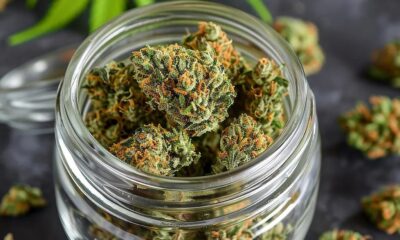

Watertown could create new rules for cannabis shops
-
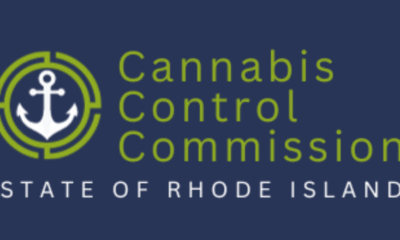

Rhode Island Opens Applications for 24 Adult-Use Dispensary Licenses
-
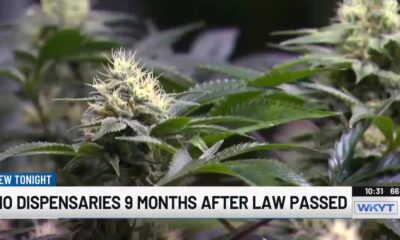

Kentucky still waiting on medical marijuana dispensaries 9 months after law passed
-


Can LSD Battle Anxiety? The Answer Is Yes, According to Science
-


Six hurt in shooting at marijuana event in SF's Bayview
featured
Federal Marijuana Legalization Bill Deserves Lawmakers’ Support, Letter From ACLU And Other Groups Says
Published
1 hour agoon
September 15, 2025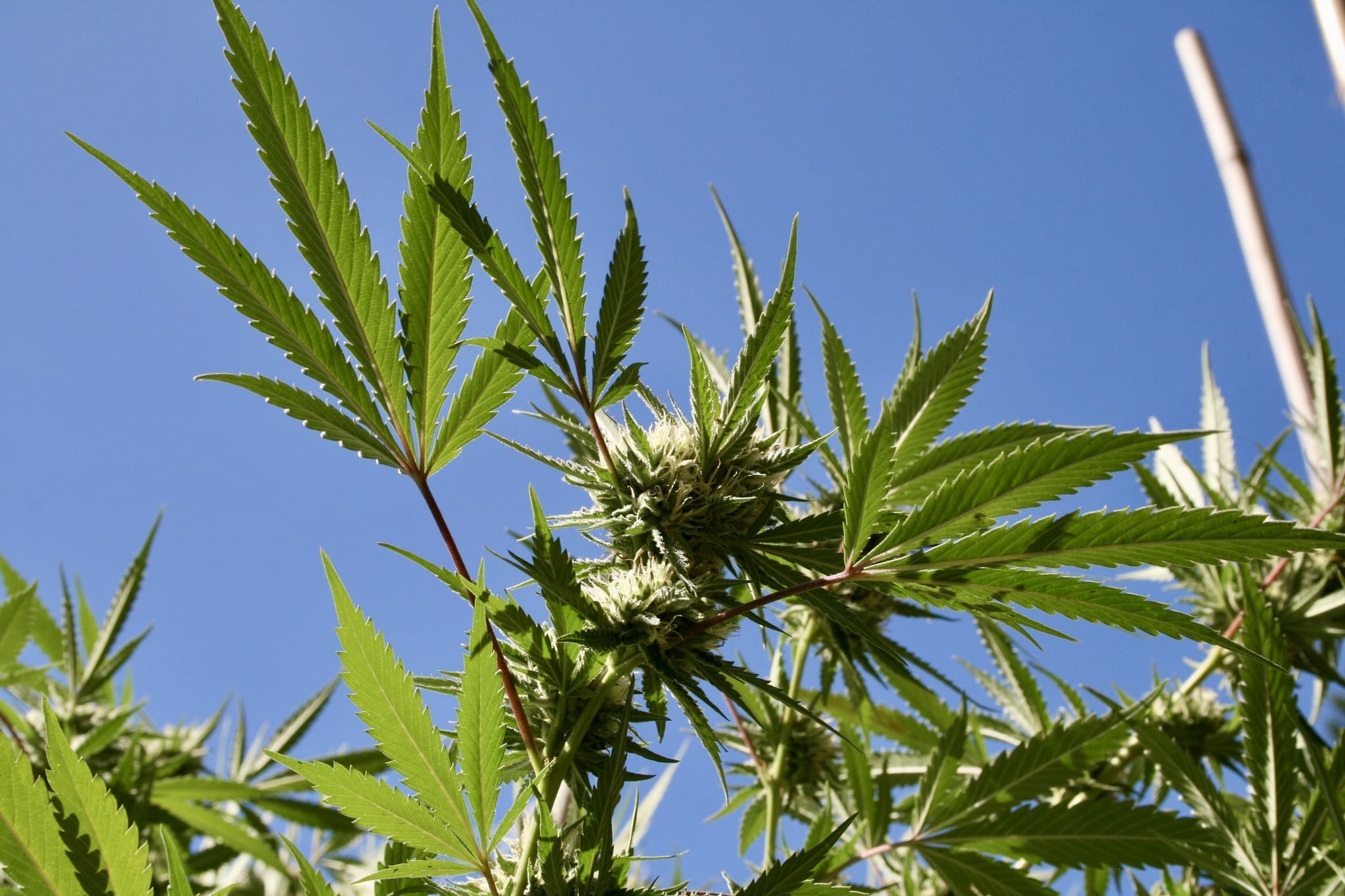
A coalition of drug policy reform and civil rights organizations sent letter urging members of the U.S. House of Representatives to cosponsor a recently filed bill to federally legalize marijuana and promote equity.
The letter, led by the Drug Policy Alliance (DPA), expresses support for the Marijuana Opportunity, Reinvestment and Expungement (MORE) Act, which was reintroduced by Rep. Jerrold Nadler (D-NY) and about three dozen cosponsors late last month.
This marks the fourth session in a row that Nadler has put forward the proposal. It passed the House twice under Democratic control while the sponsor served as chairman of the Judiciary Committee, but it did not advance last session with Republicans in the majority.
“The MORE Act is the leading comprehensive marijuana reform bill in the House that ends federal prohibition, addresses the collateral consequences of federal marijuana criminalization, and takes steps to ensure the regulated marketplace is diverse and inclusive,” the letter—which was also signed by groups such as the ACLU, National Association of Criminal Defense Lawyers, National Association of Social Workers, Service Employees International Union and Southern Poverty Law Center—says.
“For generations, marijuana’s placement on the [Controlled Substances Act, or CSA] has disproportionately inflicted harm upon communities of color and poor people,” the groups wrote.
They noted that the Trump administration is actively considering a proposal to simply reschedule cannabis, which they described as “a policy that would continue federal cannabis criminalization and its harm.”
With that reform pending, it’s “more important than ever for Congress to advance comprehensive legislation to deschedule marijuana from the CSA,” the letter says. “To be clear, as long as marijuana remains anywhere in the CSA, it will still be criminalized at the federal level.”
“Recent news reports have suggested that President Trump may move marijuana to Schedule III of the CSA. While this move would eliminate an unfair tax penalty on the marijuana industry and would be of symbolic importance by recognizing that marijuana has accepted medical use, little else would change. In fact, rescheduling marijuana from Schedule I to Schedule III of CSA will maintain the criminal penalties and collateral consequences that are in effect today. To fully address the conflict between state and federal laws, marijuana must be descheduled from the CSA.”
Other signatories on the letter include Cannabis Regulators of Color Coalition (CRCC), Doctors for Drug Policy Reform, JustLeadershipUSA, Last Prisoner Project (LPP), Law Enforcement Action Partnership (LEAP), Lawyers’ Committee for Civil Rights Under Law, Minority Cannabis Business Association (MCBA), Mission Green, NORML, Students for Sensible Drug Policy (SSDP), Supernova Women and more.
Here are details about the key provisions of the MORE Act:
- The bill would deschedule marijuana by removing it from the list of federally banned drugs under the CSA. However, it would not require states to legalize cannabis and would maintain a level of regulatory discretion up to states.
- Marijuana products would be subject to a federal excise tax, starting at five percent for the first two years after enactment and rising to eight percent by the fifth year of implementation.
- Nobody could be denied federal public benefits based solely on the use or possession of marijuana or past juvenile conviction for a cannabis offense. Federal agencies couldn’t use “past or present cannabis or marijuana use as criteria for granting, denying, or rescinding a security clearance.”
- Noncitizens could not be penalized under federal immigration laws for certain cannabis activity after the enactment of the legislation.
- The bill creates a process for expungements of non-violent federal marijuana convictions.
- Tax revenue from cannabis sales would be placed in a new “Opportunity Trust Fund.” Half of those tax dollars would support a “Community Reinvestment Grant Program” under the Justice Department, 10 percent would support substance misuse treatment programs, 40 percent would go to the federal Small Business Administration (SBA) to support implementation and a newly created equitable licensing grant program.
- The Community Reinvestment Grant Program would “fund eligible non-profit community organizations to provide a variety of services for individuals adversely impacted by the War on Drugs…to include job training, reentry services, legal aid for civil and criminal cases (including for expungement of cannabis convictions), among others.”
- The program would further support funding for substance misuse treatment for people from communities disproportionately impacted by drug criminalization. Those funds would be available for programs offering services to people with substance misuse disorders for any drug, not just cannabis.
- While the bill wouldn’t force states to adopt legalization, it would create incentives to promote equity. For example, SBA would facilitate a program to providing licensing grants to states and localities that have moved to expunge records for people with prior marijuana convictions or “taken steps to eliminate violations or other penalties for persons still under State or local criminal supervision for a cannabis-related offense or violation for conduct now lawful under State or local law.”
- The bill’s proposed Cannabis Restorative Opportunity Program would provide funds “for loans to assist small business concerns that are owned and controlled by individuals adversely impacted by the War on Drugs in eligible States and localities.”
- The comptroller general, in consultation with the head of the U.S. Department of Health and Human Services (HHS), would be required to carry out a study on the demographics of people who have faced federal marijuana convictions, “including information about the age, race, ethnicity, sex, and gender identity.”
- The departments of treasury, justice and the SBA would need to “issue or amend any rules, standard operating procedures, and other legal or policy guidance necessary to carry out implementation of the MORE Act” within one year of its enactment.
- Marijuana producers and importers would also need to obtain a federal permit. And they would be subject to a $1,000 per year federal tax as well for each premise they operate.
- The bill would impose certain packaging and labeling requirements.
- It also prescribes penalties for unlawful conduct such as illegal, unlicensed production or importation of cannabis products.
- The Treasury secretary would be required to carry out a study “on the characteristics of the cannabis industry, with recommendations to improve the regulation of the industry and related taxes.”
- The Bureau of Labor Statistics (BLS) would be required to “regularly compile, maintain, and make public data on the demographics” of marijuana business owners and workers.
- Workers in “safety sensitive” positions, such as those regulated by the Department of Transportation, could continue to be drug tested for THC and face penalties for unauthorized use. Federal workers would also continue to be subject to existing drug testing policies.
- References to “marijuana” or “marihuana” under federal statute would be changed to “cannabis.” It’s unclear if that would also apply to the title of the bill itself.
Getting a bill like the MORE Act through the GOP-controlled House and Senate is a tall task, however. And while Trump previously endorsed a Florida legalization ballot initiative, he’s given little indication he’d be willing to end prohibition altogether at the federal level.
A pending proposal to simply move cannabis from Schedule I to Schedule III under the CSA is still in flux—though the president did recently say a decision was imminent.
—
Marijuana Moment is tracking hundreds of cannabis, psychedelics and drug policy bills in state legislatures and Congress this year. Patreon supporters pledging at least $25/month get access to our interactive maps, charts and hearing calendar so they don’t miss any developments.![]()
Learn more about our marijuana bill tracker and become a supporter on Patreon to get access.
—
Numerous voices within Trump’s circles have expressed differing opinions on the reform.
Most recently, for example, Ben Carson, Trump’s former secretary of the Department of Housing and Urban Development (HUD), said a move to reschedule marijuana would play into plots to “destroy this country.”
Trump’s former press secretary Sean Spicer and his long-time advisor Roger Stone recently traded diverging takes on the prospect of the administration moving forward on marijuana rescheduling.
Stone separately made the case for reform in an op-ed for Marijuana Moment last month.
Retired boxer Mike Tyson, meanwhile, recently spoke about the need for federal marijuana rescheduling on a podcast hosted by the wife of White House Deputy Chief of Staff for Policy Stephen Miller—saying he’s expecting “good news” on the issue soon.
In June, the retired boxer also took to Fox News and delivered a message to the president, urging him to reschedule, and ultimately legalize, marijuana.
That interview came days after Tyson led a letter alongside other professional athletes and celebrities promoting cannabis reform that was sent to Trump, calling for rescheduling marijuana, expanding clemency and allowing licensed cannabis businesses to access the banking system.
Meanwhile, Trump’s former senior advisor Kellyanne Conway has been the “biggest champion” of marijuana rescheduling within the president’s “inner circle,” a GOP congressman recently told Marijuana Moment.
Photo courtesy of Brian Shamblen.

Author: mscannabiz.com
MScannaBIZ for all you Mississippi Cannabis News and Information.
featured
Rhode Island Opens Applications for 24 Adult-Use Dispensary Licenses
Published
2 hours agoon
September 15, 2025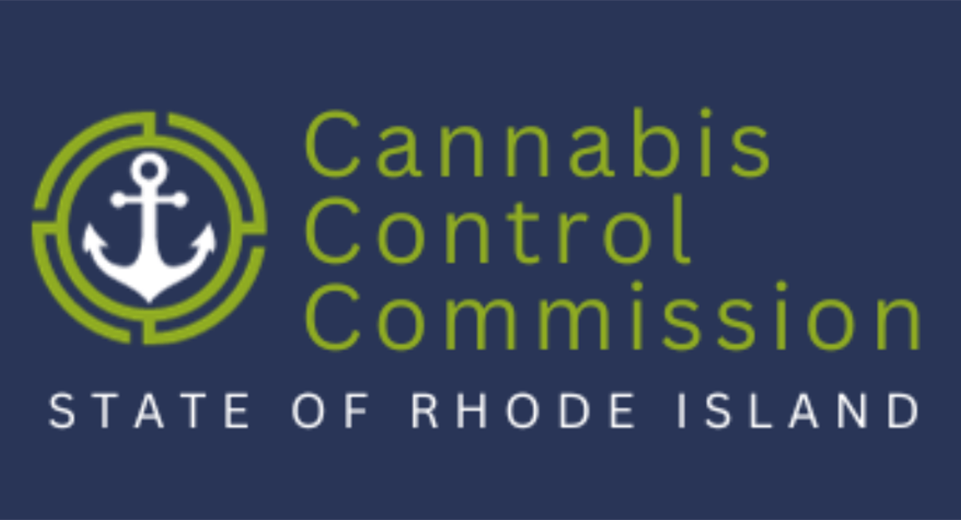
[PRESS RELEASE] – WARWICK, R.I., Sept. 12, 2025 – The Cannabis Control Commission (CCC) opened the application period for adult-use cannabis retail licenses, marking the beginning of the largest expansion to Rhode Island’s cannabis industry. The commission is authorized under the Rhode Island Cannabis Act to license up to 24 retail establishments statewide, divided equally across six geographic zones, making this announcement a defining moment in shaping the state’s cannabis marketplace.
“Today’s announcement represents years of work, collaboration and preparation to ensure Rhode Island has a cannabis marketplace that is safe, transparent, and equitable,” CCC Chairperson Kim Ahern said. “The release of this application and launch of our submission portal is not only about opening doors for businesses but about creating meaningful opportunities for Rhode Islanders while keeping public health and public safety at the center of everything we do.”
With only 24 retail licenses available statewide, the launch of the application process is expected to draw significant interest from prospective applicants. Together with the Social Equity Applicant Status Certification Portal, which opened in August, the application process reflects the CCC’s deliberate steps toward building a cannabis industry that prioritizes economic opportunity, equity and fairness in Rhode Island.
“Rhode Island’s cannabis market is poised for growth, and this application is helping us do exactly that,” Gov. Dan McKee said. “As we expand the cannabis industry here in the Ocean State, we’re opening the doors to new investment, new good-paying jobs, and new opportunities for our economy.”
Adult-use retail licenses will authorize sales of cannabis products to adults 21 and older. By releasing the application and opening the submission portal simultaneously, the commission is providing applicants with a transparent process while reinforcing its commitment to accountability and access.
“Today’s release of the adult-use retail license application reflects the commission’s commitment to equity and accountability,” Commissioner Layi Oduyingbo said. “This framework provides applicants with the information they need while reinforcing our responsibility to safeguard public health and consumer safety.”
Commissioner Robert Jacquard said, “The commission aims to make this application process as business-friendly as possible, while upholding standards that will protect public health.”
To ensure the process is fair and accessible, the commission and Cannabis Office will provide technical assistance resources and ongoing guidance for prospective applicants. Applications will be accepted until 4 p.m. on Dec. 29, 2025.
“This is a milestone that reflects the dedication and perseverance of so many people,” Cannabis Office Administrator Michelle Reddish said. “From lawmakers and advocates to community members and our dedicated staff, countless individuals have helped build the foundation for this moment. By publishing the application today, we are taking a historic step toward building a cannabis marketplace that serves consumers, supports equity and advances public health in Rhode Island.”
The adult-use retail license application is available on the commission’s website at www.ccc.ri.gov/auapp.

Author: mscannabiz.com
MScannaBIZ for all you Mississippi Cannabis News and Information.
featured
Can LSD Battle Anxiety? The Answer Is Yes, According to Science
Published
3 hours agoon
September 15, 2025
Hands down, one of the drugs that has received the worst press in the decades marked by the War on Drugs has been LSD. All sorts of things have been said about this molecule: that it drives you crazy, or suicidal, that it remains stored in your body forever, that it irreparably damages the brain… Fortunately, we now have professionals investigating the matter, with a scientific perspective rather than a moralistic or prohibitionist one.
One of the latest findings on the subject seems to directly contradict one of the great myths about LSD: instead of leading to insanity, this compound could reduce anxiety. This is according to a study by Mind Medicine (MindMed) Inc., a biopharmaceutical company that has been researching psychedelic compounds for mental health for many years. While the preliminary results were released in 2022, they were officially published this month in the Journal of the American Medical Association.
This isn’t the first time MindMed has embarked on studying this topic: it had already achieved positive results with LSD for anxiety on another occasion. In fact, the FDA granted Breakthrough Therapy designation for generalized anxiety disorder (GAD) to the company’s proprietary drug candidate, MM120, a pharmacologically optimized formulation of LSD.
LSD and Anxiety: What the MindMed Study Says
The company conducted a multicenter, randomized, double-blind, placebo-controlled Phase 2b study at 22 outpatient psychiatric research centers in the US. The effects of a single dose of MM120 (lysergide D-tartrate, LSD) were analyzed in 198 adults with moderate to severe generalized anxiety disorder (GAD). Participants experienced sustained improvements in their condition over the 12-week observation period.
According to the company’s press release, this is the first randomized, placebo-controlled trial evaluating a single treatment at four dose levels (25, 50, 100, or 200 µg), without any psychotherapeutic intervention.
The optimal dose of MM120 was determined at 100 µg. This demonstrated a “clinically and statistically significant improvement vs. placebo, and a 65% clinical response rate and 48% clinical remission rate” at the end of the experiment.
Likewise, tolerance to the medication was positive, with the expected adverse effects of an LSD experience remaining mild to moderate and lasting only one day.
During the study, participants receiving medication for their condition had to discontinue such treatment under the supervision of the study professionals. Furthermore, on the day of dosing, they were offered “standardized music and eyeshades and could lie down, move freely around the room, read, write, or draw.” It should be noted that the study protocol explicitly prohibited participation in psychotherapy.
Dr. Maurizio Fava, one of the study’s authors, stated that “this study is a true turning point in the field of psychiatry… For the first time, LSD has been studied with modern scientific rigor, and the results are both clinically meaningful and potentially paradigm-shifting for the treatment of GAD. GAD affects 26 million adults in the U.S., yet no new medications have been approved since 2007—and first-line treatments fail 50% of patients.”
Thus, scientific innovation continues to advance against the willful ignorance of prohibitionists, working tirelessly to ensure patients have access to the relief that traditional therapies fail to provide.
This article was first published on El Planteo.

Author: mscannabiz.com
MScannaBIZ for all you Mississippi Cannabis News and Information.

Federal Marijuana Legalization Bill Deserves Lawmakers’ Support, Letter From ACLU And Other Groups Says

Watertown could create new rules for cannabis shops

Rhode Island Opens Applications for 24 Adult-Use Dispensary Licenses

Kentucky still waiting on medical marijuana dispensaries 9 months after law passed

Can LSD Battle Anxiety? The Answer Is Yes, According to Science

Six hurt in shooting at marijuana event in SF's Bayview

Kentucky Medical Marijuana Dispensaries Should Be Stocked With Products Ready For Sale By Next Month, Top State Official Says

Deputies: 3,500 child sex abuse images, marijuana grow operation found in NC home raid

Regulators Ready to Enforce Cannabis Laws on Hemp THC Retailers in Maryland

California reaps over $250 million from 2nd Quarter cannabis sales

Meet the World’s First Cannabis Rugby Team: Crewmen 7’s Tackle Stigma Head-On

Texas Supreme Court Refuses To Take Up Marijuana Case Challenging State’s Rejection Of Local Decriminalization Law

California Passes Bill to Ban Intoxicating Hemp Products Outside Cannabis Market

Pending Federal Hemp Legislation Could Reshape The Legal Industry By Banning Some Products (Op-Ed)

Verano Proposes to Redomicile Parent Company From British Columbia to Nevada

8,000 cannabis plants seized from illegal Bradford grow-op

New York Lawmakers Schedule Psychedelics-Focused Hearing To Discuss ‘Medicinal Value And Risks’ Of Psilocybin

Curaleaf Opens Cannabis Dispensaries in Florida, Ohio

How to Protect Your Outdoor Cannabis Crops From Pests

Feds provide anti-cannabis group a platform to bash legalization (Newsletter: September 15, 2025)

Dozen arrested after south Mississippi bust for illegal sales to underage customers

The Toking Traveler: Why Amsterdam Weed Is Mostly Boof

Arkansas Medical Marijuana Sales Are On Track To Set A New Annual Record

When Cannabis Brands Blur Into Youth Culture, Regulators Notice: Lessons From Tobacco’s Past

Alert: Department of Cannabis Control updates data dashboards with full data for 2023

Connecticut Appoints The US’s First Cannabis Ombudsperson – Yes there is a pun in there and I’m Sure Erin Kirk Is Going To Hear It More Than Once!

5 best CBD creams of 2024 by Leafly

EU initiative begins bid to open access to psychedelic therapies
New Study Analyzes the Effects of THCV, CBD on Weight Loss

Free delta-9 gummies from Bay Smokes

Discover New York’s dankest cannabis brands [September 2024]

5 best autoflower seed banks of 2024 by Leafly

Press Release: CANNRA Calls for Farm Bill to Clarify Existing State Authority to Regulate Hemp Products

Curaleaf Start Process Of Getting Their Claws Into The UK’s National Health System – With Former MP (Resigned Today 30/5/24) As The Front Man

May 2024 Leafly HighLight: Pink Runtz strain

Local medical cannabis dispensary reacts to MSDH pulling Rapid Analytics License – WLBT

Recreational cannabis on ballot for third time in South Dakota

5 best THC drinks of 2024 by Leafly

Horn Lake denies cannabis dispensary request to allow sale of drug paraphernalia and Sunday sales | News

Mississippi city official pleads guilty to selling fake CBD products

6 best CBD gummies of 2024 by Leafly

Nevada CCB to Accept Applications for Cannabis Establishments in White Pine County – “Only one cultivation and one production license will be awarded in White Pine County”

The Daily Hit: October 2, 2024

5 best delta-9 THC gummies of 2024 by Leafly

Weekly Update: Monday, May 13, 2024 including, New Guide for Renewals & May Board meeting application deadline

PRESS RELEASE : Justice Department Submits Proposed Regulation to Reschedule Marijuana

5 best THCA flower of 2024 by Leafly

People In This State Googled ‘Medical Marijuana’ The Most, Study Shows
Trending
-

 California Cannabis Updates1 year ago
California Cannabis Updates1 year agoAlert: Department of Cannabis Control updates data dashboards with full data for 2023
-

 Breaking News1 year ago
Breaking News1 year agoConnecticut Appoints The US’s First Cannabis Ombudsperson – Yes there is a pun in there and I’m Sure Erin Kirk Is Going To Hear It More Than Once!
-

 best list1 year ago
best list1 year ago5 best CBD creams of 2024 by Leafly
-

 Business12 months ago
Business12 months agoEU initiative begins bid to open access to psychedelic therapies
-

 cbd1 year ago
cbd1 year agoNew Study Analyzes the Effects of THCV, CBD on Weight Loss
-

 Bay Smokes1 year ago
Bay Smokes1 year agoFree delta-9 gummies from Bay Smokes
-

 cannabis brands12 months ago
cannabis brands12 months agoDiscover New York’s dankest cannabis brands [September 2024]
-

 autoflower seeds12 months ago
autoflower seeds12 months ago5 best autoflower seed banks of 2024 by Leafly




